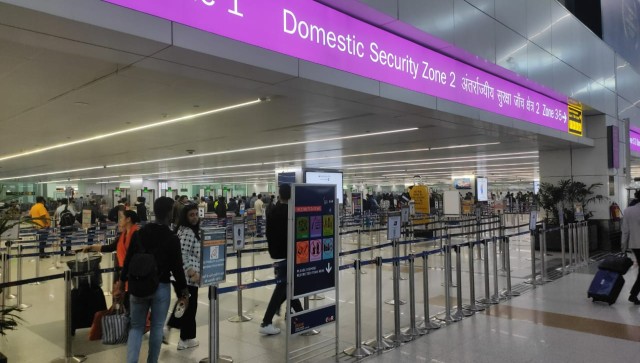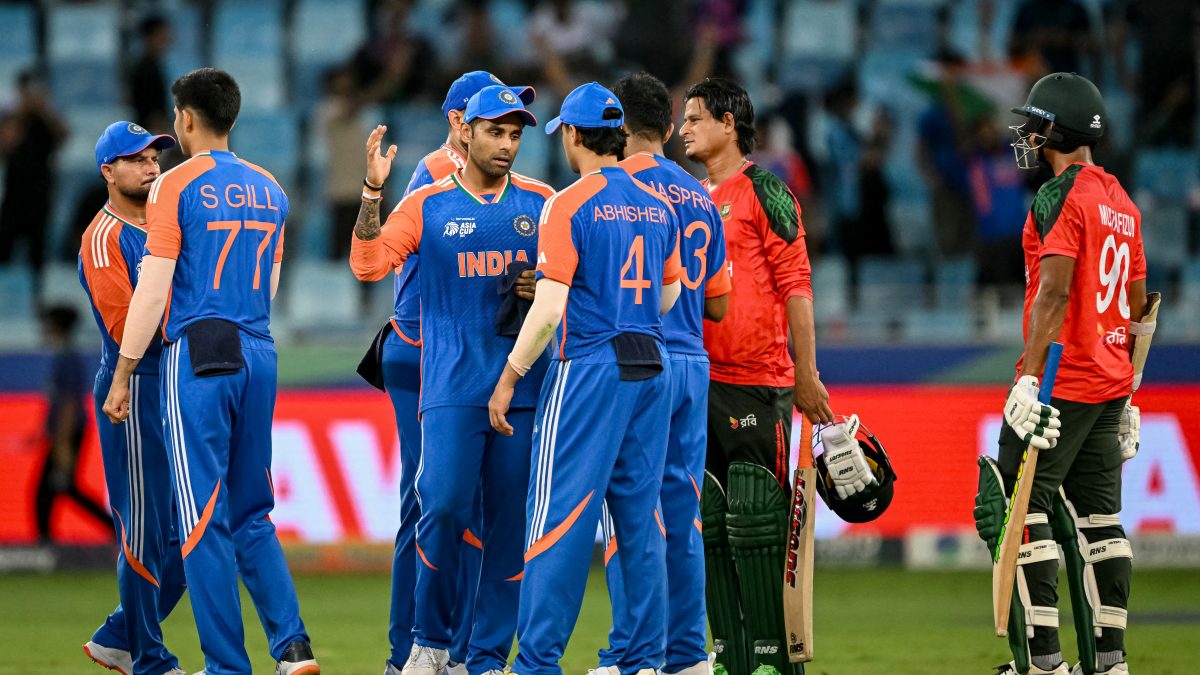Going through airport security can be a pain – especially when it comes to electronic devices in your bags.
This is because scanners currently used at airports provide a two-dimensional view of the objects inside hand baggage.
But those struggles may soon be a thing of the past.
Let’s take a closer look:
What happened?
The Bureau of Civil Aviation Security (BCAS) has recommended installing scanners that use computer tomography technology at airports across India.
The BCAS comes under the ambit of the civil aviation ministry.
The aviation watchdog’s recommendation, if implemented, would mean that passengers would no longer be required to remove electronic devices from their hand luggage before going through the scanner.
Jaideep Prasad, joint director general, BCAS said the regulator has proposed installing scanners based on computer tomography technology at airports that will provide a three-dimensional view of the objects in hand baggage.
‘‘With such scanners, passengers will not be required to take out their electronic devices from hand baggage before going through the scanner,’’ he told PTI.
As per NDTV, these scanners are already being used at airports in the US and Europe.
According to Hindustan Times, these baggage scanners are expected to be installed at airports in Delhi, Mumbai, Bengaluru and Hyderabad.
Impact Shorts
More Shorts“Our aim is to clear the passengers faster and with better security equipment,” a Union civil aviation ministry official told the newspaper.
The official added that the notification would be issued in a month.
What technologies will be deployed?
According to the civil aviation ministry, some of the technologies deployed and proposed for deployment at sensitive airports include Computer Tomography Explosive Detection Systems (CT-EDS) machines and Dual Generator X-BIS machines.
‘‘Direction has been issued for Minimum Technical specification for Perimeter Intrusion Detection System (PIDS). It has been installed at Delhi, Hyderabad and Bangalore airports… The Full Body Scanner at all airports is planned in a phased manner with all hypersensitive and sensitive airports on priority basis,’’ Minister of State for Civil Aviation V K Singh told Lok Sabha on December 8.
Deployment of Radiological Detection Equipment (RDE) at airports is also planned in a phased manner.
More details about the recommendation are awaited.
Why is this important?
Installation of such scanners is also expected to help in speeding up the security check in process at airports.
This comes in the backdrop of congestion and long waiting hours at several airports across India including the National Capital and Mumbai.
**Also read: Like Delhi, Like Mumbai: Why chaos at airports continues**Over the last two weeks, passengers have been posting pictures and videos of long queues and crowding at the IGI in Delhi and the Chhatrapati Shivaji Maharaj International Airport in Mumbai prompting authorities to take note and asking airlines and airport operators to ease the traffic.
The continued commotion at the airports has forced airlines to ask passengers to reach airports early, do a web check-in, and carry only one piece of hand baggage for faster movement.
Authorities have put in place various measures and the congestion has eased.
Earlier this month, the ministry told the Lok Sabha that strengthening of safety and security at airports is an ongoing process and reviewed from time to time by the safety regulator Directorate General of Civil Aviation (DGCA) and security regulator BCAS, in consultation with the other concerned agencies and stakeholders, including Central Industrial Security Force (CISF) and airport operators, depending upon threat perceptions.
India is one of the fastest growing civil aviation markets globally and the country’s domestic air traffic has been more than 4 lakh passengers in recent days, and is now above the pre-pandemic level.
With inputs from agencies
Read all the Latest News, Trending News, Cricket News, Bollywood News,
India News and Entertainment News here. Follow us on Facebook, Twitter and Instagram.


)

)
)
)
)
)
)
)
)



